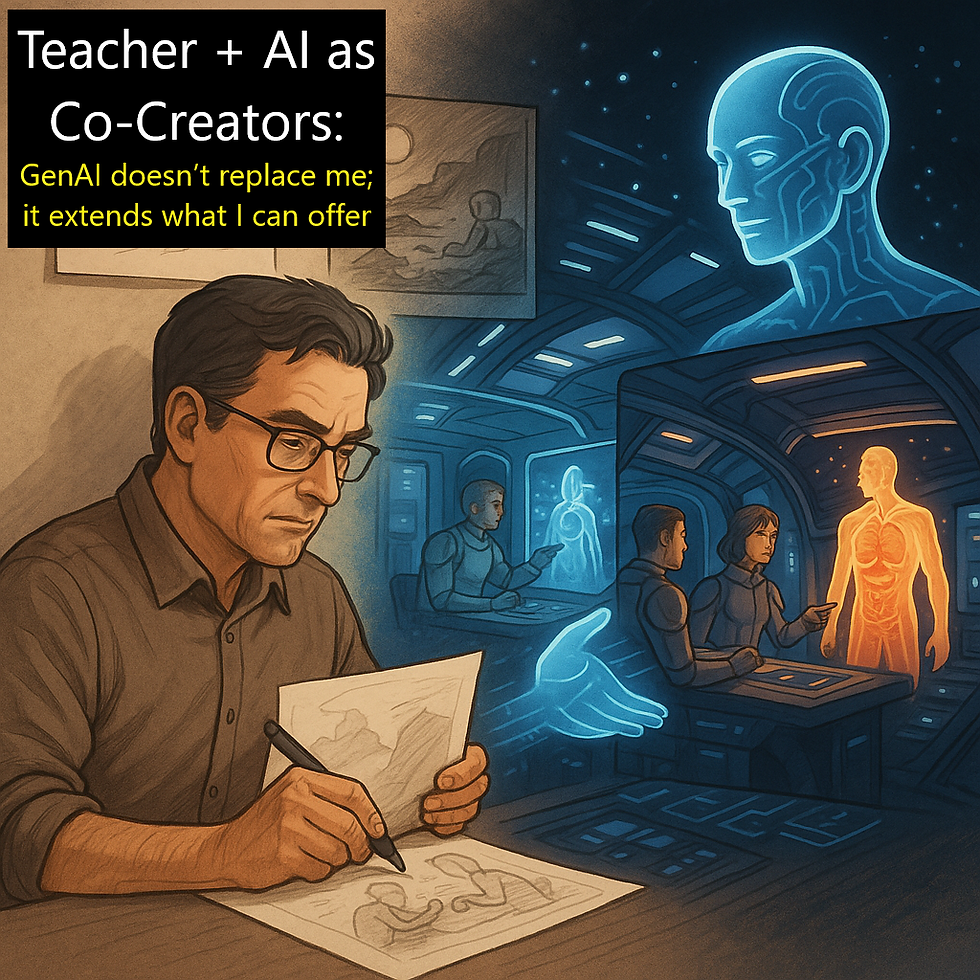GenAI Webinar 18 July 2025
- sasha97518
- May 24
- 3 min read
We invite you to join the 2nd Annual AAIEEC Showcase. The first hour will explore current research projects underway. The second hour will be a panel session exploring competencies and assessment in the GenAI era.
Agenda
10:30 – 10:35 Open
10:35 – 10:42 Project-work: A Starting Point for GenAI Integration of Future-facing Skills (Sasha Nikolic, UOW)
10:43 – 11:00 Using AI to Inform Assessment Redesign: Ethical Hacking and Co-Design in Engineering Education (Swapneel Thite, & Giordana Orsini Florez – UNSW)
11:00 – 11:12 AI Ethics (Zachery Quince, SCU)
11:13 – 11:30 Online Modules to Embed AI-Assisted Coding (Dr Aneesha Bakharia & Mr Lachlan Miller, UQ)
11:30 – 12:30 Panel Session - Human Skills vs. Artificial Intelligence: Engineering Competencies and Assessment in the GenAI Era (Featuring Sally Male UMelb, Zach Quince SCU, Montse Ros UOW, Peter Neal UNSW)
Project-work: A Starting Point for GenAI Integration of Future-facing Skills
Sasha Nikolic, UOW
Sixteen academics from nine Australian universities have collaborated to create the Project-work Artificial Intelligence Integration Framework (PAIIF). The presentation provides a holistic overview of touchpoints that coordinators can call upon for integration. Develop an understanding of how we move from a focus on cheating to a focus on learning. The presentation will provide a high-level overview and practical examples of activities that can support successful integration
Using AI to Inform Assessment Redesign: Ethical Hacking and Co-Design in Engineering Education
Swapneel Thite, & Giordana Orsini Florez – UNSW
As generative AI tools become increasingly capable, the question facing higher education is no longer “Can AI cheat?” but rather, “How can we design assessments that continue to assure learning in an AI-enabled world?” This presentation outlines a dual approach developed at UNSW Engineering that reframes AI from a threat to a diagnostic partner and empowers educators through supported redesign.
In the first stage, we introduced the Ethical AI Hacking Framework as a diagnostic methodology that stress-tests assessments rather than surveils students. These insights exposed specific assessment vulnerabilities to inform assessment redesign. In the second stage, we implemented a co-design workshop model to support educators in redesigning assessments through a structured, collaborative process with educational developers. In the pilot course, the workshop helped the academic identify context-specific challenges and opportunities, then guided a shift from product-focused to process-oriented assessments that more effectively assure learning in the context of generative AI. The workshop design incorporated scaffolded prompts, reflective questioning, and evidence-based redesign recommendations. Post-workshop survey results showed significant improvements in educators’ confidence in addressing AI-related challenges and applying changes within the constraints of their courses.
AI Ethics
Zachery Quince, SCU
Abstract - coming soon
Online Modules to Embed AI-Assisted Coding
Dr Aneesha Bakharia & Mr Lachlan Miller, UQ
This presentation outlines ongoing work supported by a Teaching Innovation Grant at the University of Queensland to develop three web-based learning modules that embed AI-assisted coding within data analysis and programming domains. The project aims to support learning with AI and build students’ critical AI literacies by focusing on practical skills such as effective prompting, AI-assisted debugging, and evaluating AI-generated code. The Data Analysis module, currently trialled in both undergraduate and postgraduate Chemical Engineering courses, and a Python module in a Web Development course, form the basis of our discussion, with a third module in development focused on software development for non-coders. We will present the structure, design guidelines, and activities of these modules, which are flexible, discipline-aligned, and include ethical considerations to help students engage meaningfully with AI tools in their coursework.
Panel Session - Human Skills vs. Artificial Intelligence: Engineering Competencies and Assessment in the GenAI Era
Featuring Sally Male UMelb, Zach Quince SCU, Montse Ros UOW, Peter Neal UNSW and more TBC
As Generative AI reshapes engineering practice, this panel explores the evolving balance between human skills and AI capabilities. Experts will discuss essential human competencies, implications for assessment, and strategies to ensure valid, future-ready engineering education.





Comments